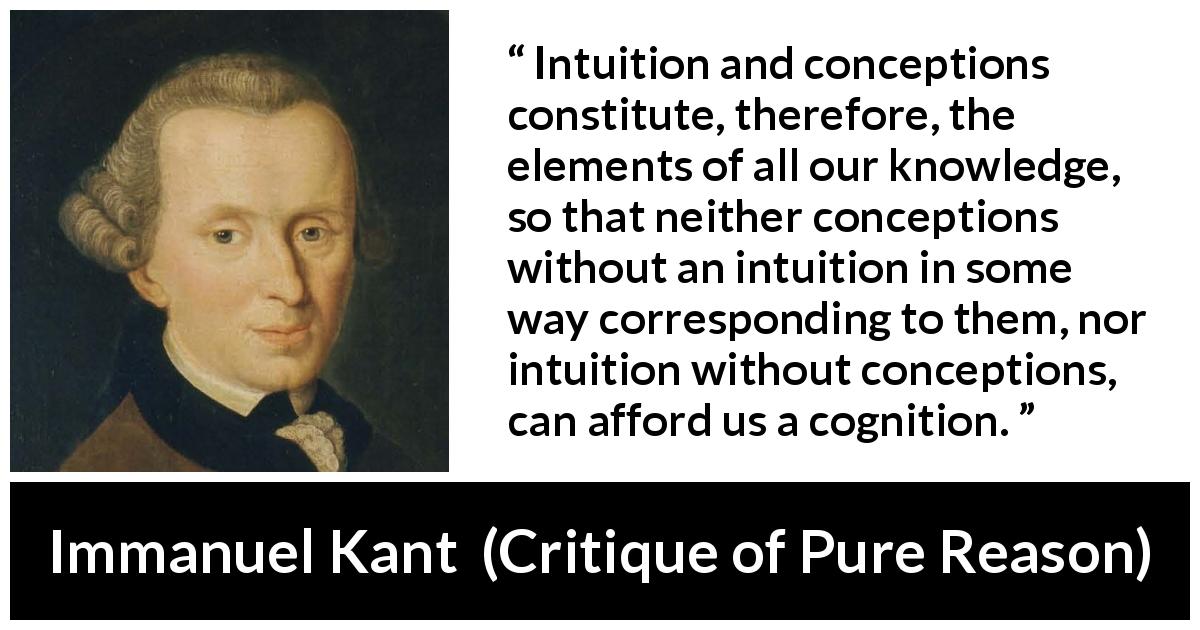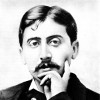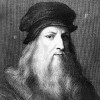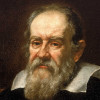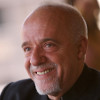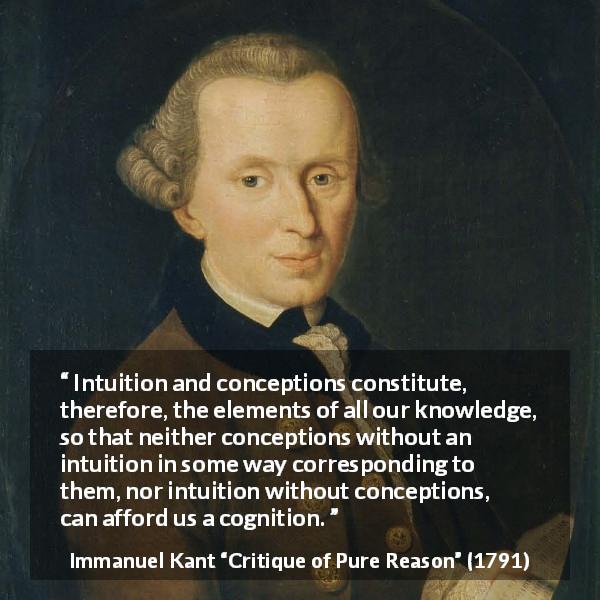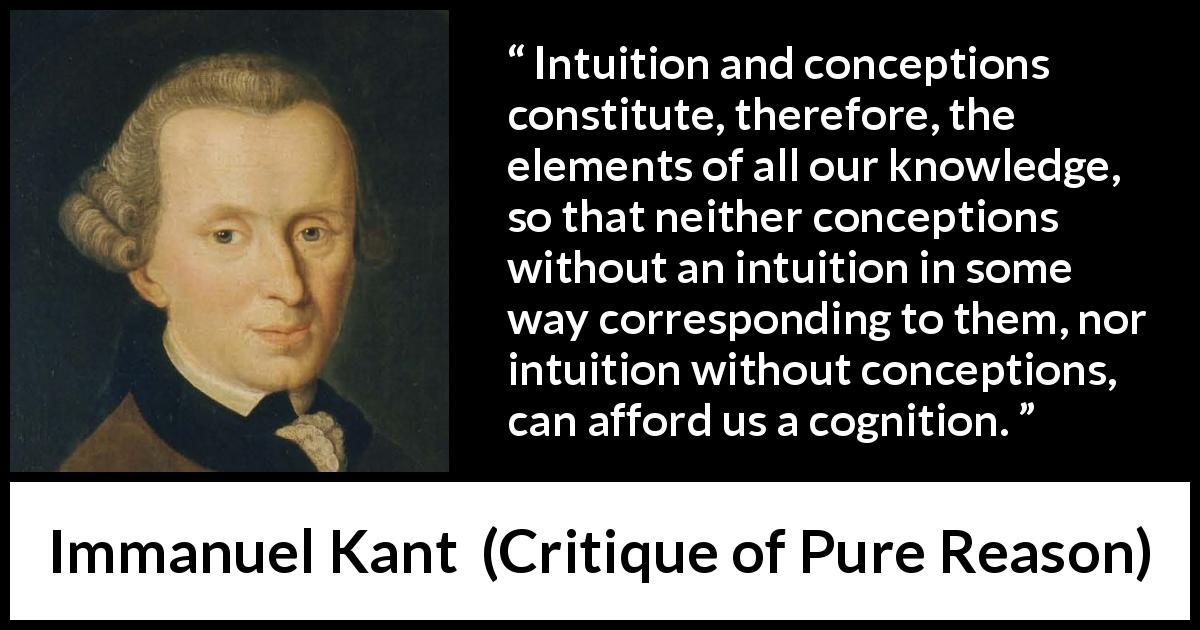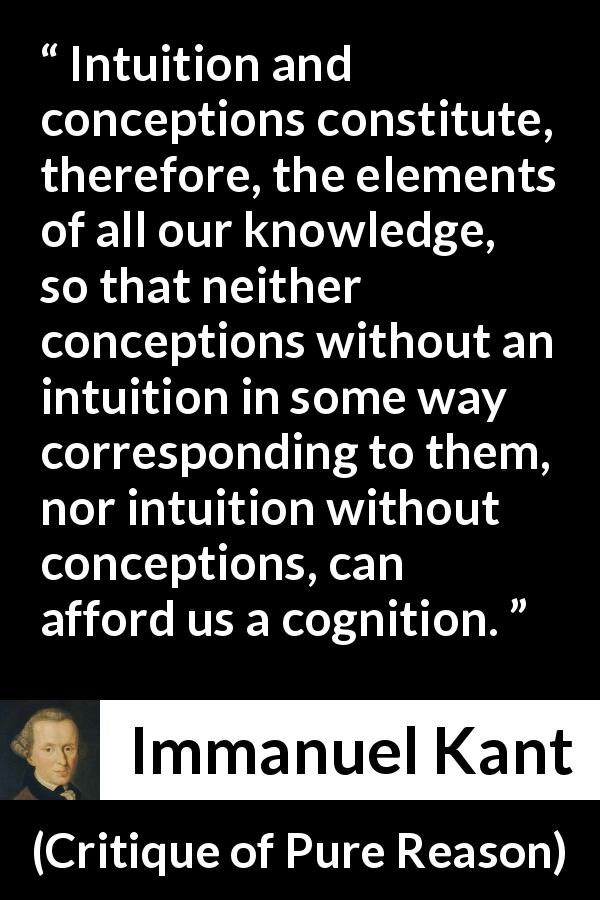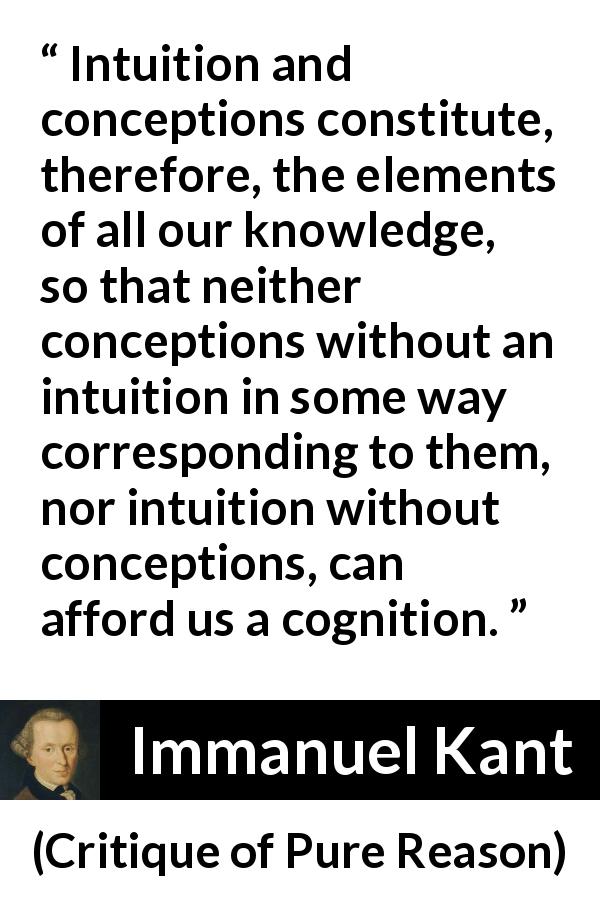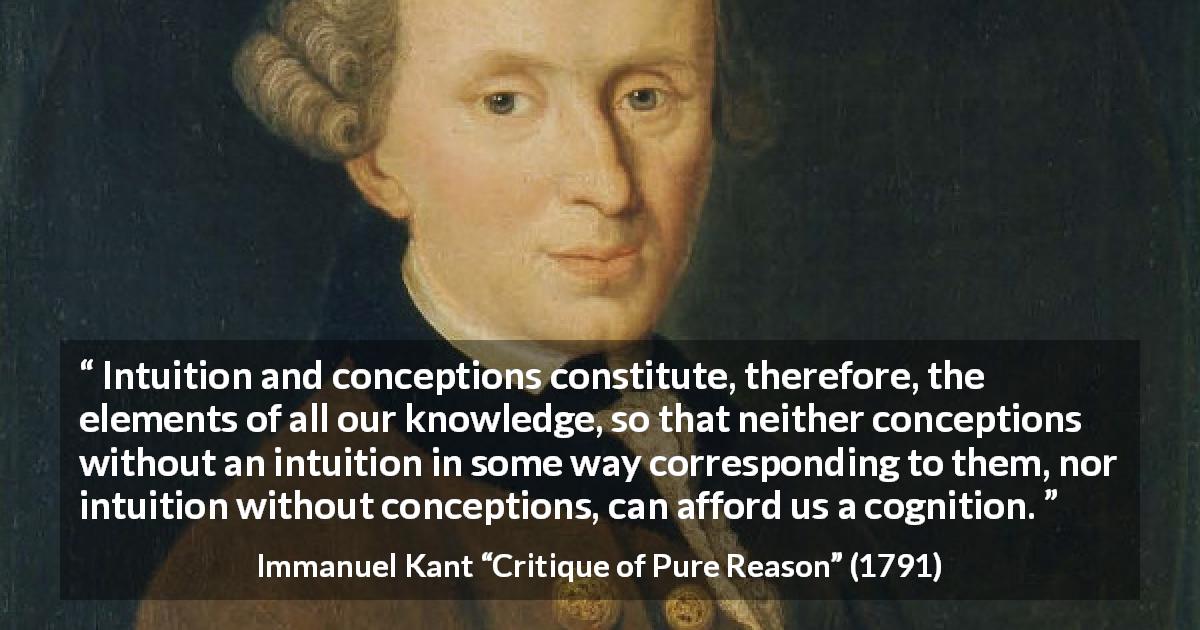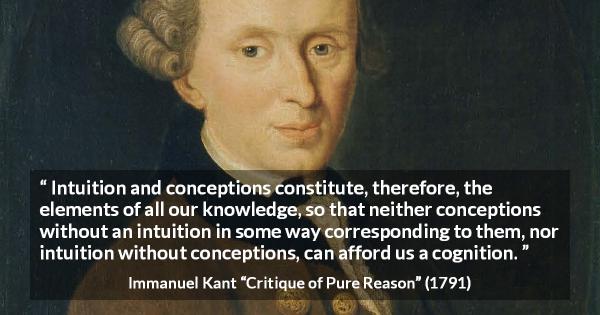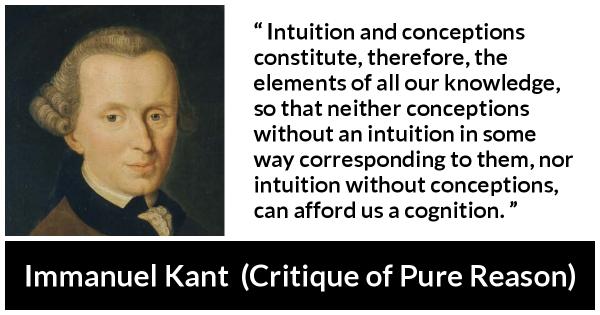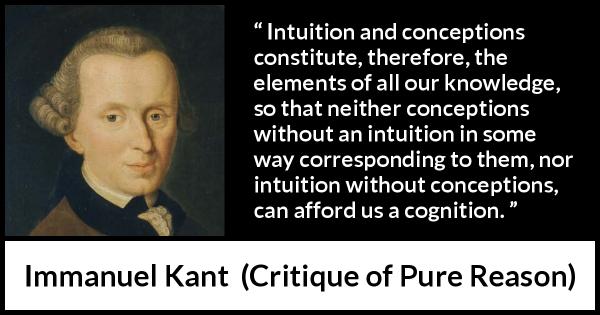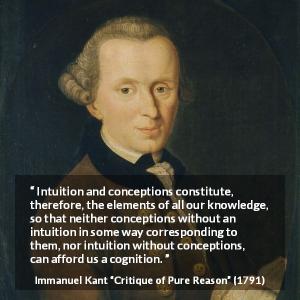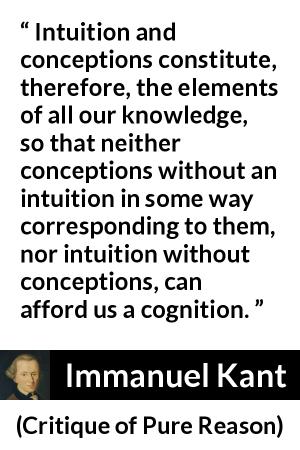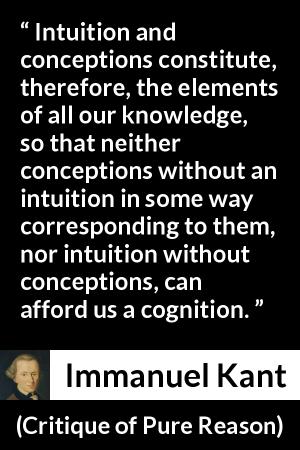“ Intuition and conceptions constitute, therefore, the elements of all our knowledge, so that neither conceptions without an intuition in some way corresponding to them, nor intuition without conceptions, can afford us a cognition. ”
Immanuel Kant, Critique of Pure Reason (1791). copy citation
| Author | Immanuel Kant |
|---|---|
| Source | Critique of Pure Reason |
| Topic | knowledge intuition conception cognition |
| Date | 1791 |
| Language | English |
| Reference | |
| Note | Translated by J. M. D. Meiklejohn |
| Weblink | http://www.gutenberg.org/files/4280/4280-h/4280-h.htm |
Context
“Our knowledge springs from two main sources in the mind, first of which is the faculty or power of receiving representations (receptivity for impressions); the second is the power of cognizing by means of these representations (spontaneity in the production of conceptions). Through the first an object is given to us; through the second, it is, in relation to the representation (which is a mere determination of the mind), thought. Intuition and conceptions constitute, therefore, the elements of all our knowledge, so that neither conceptions without an intuition in some way corresponding to them, nor intuition without conceptions, can afford us a cognition. Both are either pure or empirical. They are empirical, when sensation (which presupposes the actual presence of the object) is contained in them; and pure, when no sensation is mixed with the representation.”
source
